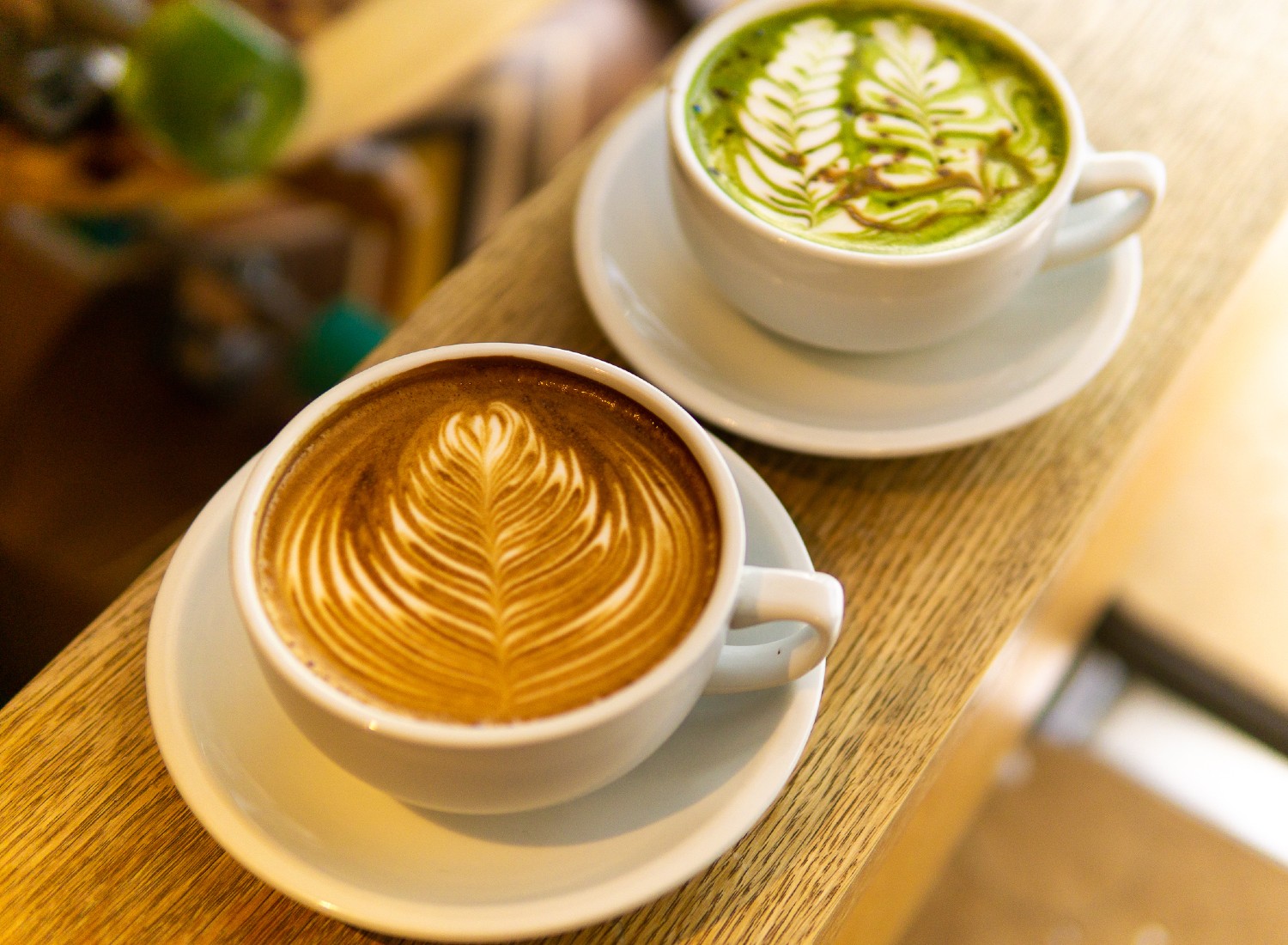Matcha vs. Coffee: Which Is the Healthier Caffeine Source?

Caffeine has become an integral part of people’s daily routines, with coffee being the go-to source for a quick boost of energy. However, there has been a recent trend towards other drinks for an energy boost. One of the popular choices is matcha as another caffeine source.
There are a slew of health benefits attributed to it as well. As such, the debate between matcha and coffee has been ongoing, with the question being which one is the healthier caffeine source. In this blog, we will delve into the differences between matcha and coffee and determine which one is better for your health.
What is Matcha?
Matcha is a type of green tea that originated in Japan. Matcha has been widely used in traditional Japanese tea ceremonies for centuries. It’s made from ground-up, shade-grown green tea leaves that are stone-ground into a fine matcha powder. The process of shading the tea leaves increases their chlorophyll content and amino acid production, giving matcha its vibrant green color and unique flavor.
What is Coffee?
Coffee is a brewed drink made from roasted coffee beans, which are the seeds of berries from the Coffea plant. The beans get roasted to varying degrees, creating different flavors and intensities of coffee. The most common way to consume coffee is by brewing it with hot water, but many prefer drinking it cold or in other forms such as espresso and cappuccino.
Caffeine Content
The main reason why people turn to matcha and coffee is for its caffeine content. Caffeine is a natural stimulant that helps you feel more alert, focused, and energized. However, the amount of caffeine in matcha and coffee differs significantly. A cup of matcha contains about 70mg of caffeine, while a cup of brewed coffee has about 95mg. This means that coffee has a higher concentration of caffeine compared to matcha.
Caffeine affects people differently, and some individuals have a higher tolerance for caffeine than others. If you’re someone who is sensitive to caffeine or has a low caffeine tolerance, then matcha may be the better option for you.
Caffeine Release
Coffee contains a higher amount of caffeine, but it’s released quickly into your system, giving you an immediate boost of energy. This quick release can lead to jitters and crashes as the effects wear off. On the other hand, matcha contains a lower concentration of caffeine, but it is gradually released over time. This slow release helps to avoid the jitters and crashes associated with coffee, providing a more sustained and long-lasting energy boost.
Nutritional Value
Aside from caffeine content and release, matcha and coffee also differ in their nutritional value. Matcha has high levels of antioxidants, specifically catechins, which are potent disease-fighting compounds. These antioxidants help to prevent cell damage and reduce the risk of chronic diseases such as heart disease and cancer. Coffee also contains antioxidants, but not at the same level as matcha. Additionally, matcha is a good source of vitamins and minerals such as Vitamin C, potassium, magnesium, and iron.
Preparation and Cost
Matcha and coffee also have different preparation processes. To make a cup of matcha, you will need a special set that includes a bamboo whisk, scoop, and bowl. This traditional method can be time-consuming and requires some skill to get the perfect consistency. Coffee, on the other hand, is much easier to prepare with just a coffee maker or French press.
However, matcha sets are becoming more accessible and affordable, making it more convenient for individuals to enjoy matcha at home. When it comes to cost, coffee is typically less expensive than matcha. However, matcha is often considered to be more of a luxury item due to its traditional origins and health benefits. It is also worth noting that with coffee, there are endless options for different types and flavors, while matcha has a more limited variety.
Conclusion
Both matcha and coffee have their unique qualities and benefits. Ultimately, the healthier caffeine source depends on your personal preferences and needs. If you are looking for a low-calorie option with potential health benefits, then matcha may be the better choice. However, if you need an immediate energy boost without much preparation, coffee may be the way to go. Whichever you choose, both matcha and coffee can provide the caffeine kick you need to power through your day. So why not try switching up your caffeine sources?
